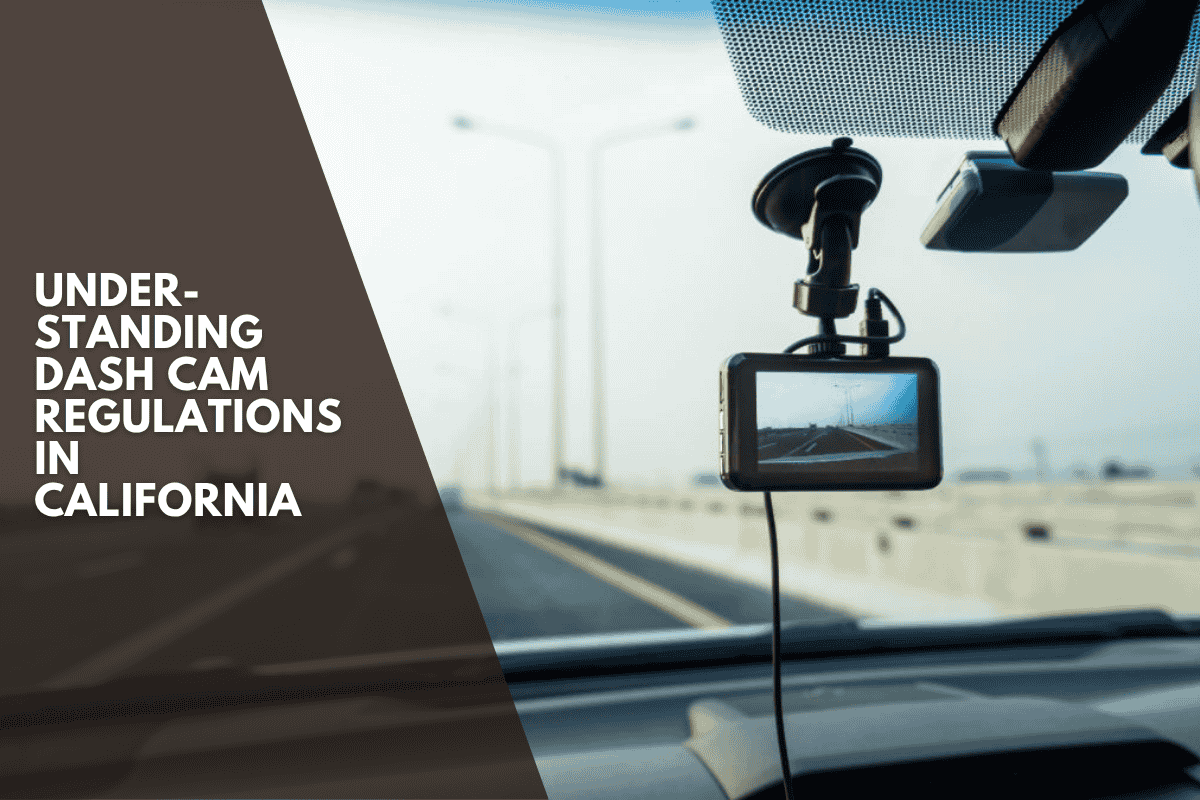Dash cams are legal in California, but their use is governed by strict rules to protect both driver safety and privacy. These devices can be valuable for providing evidence in accidents and insurance claims, but it is essential to comply with placement, audio recording, and privacy laws to ensure the footage is admissible and that the use is lawful.
Placement Rules
California law specifies exactly where dash cams can be mounted to avoid obstructing the driver’s view or interfering with vehicle safety features. Dash cams are allowed to be mounted in a 7-inch square on the lower right corner of the windshield, or a 5-inch square on the lower left corner.
They may also be mounted in the upper center area behind the rearview mirror, provided the device does not exceed 5 square inches. The placement must not obstruct the driver’s line of sight or interfere with the airbag deployment. Improper installation can result in fines and may render the footage inadmissible in legal proceedings.
Audio Recording and Consent
California operates under a two-party consent law for audio recordings. This means that if your dash cam records audio, you must obtain consent from everyone being recorded, including passengers in your vehicle. You are legally required to notify everyone in the car if your dash cam records audio. Failure to inform passengers and obtain their consent can lead to privacy violation claims and potential legal penalties.
Privacy and Data Handling
Dash cam footage, particularly with audio, is considered sensitive information. It’s important to store recordings securely and avoid sharing them without the consent of those recorded, unless required for legal or insurance purposes. Law enforcement typically requires a warrant to seize dash cam footage unless there is an immediate risk of evidence being destroyed.
Admissibility in Court
Dash cam footage is generally admissible as evidence in California courts, provided it was obtained lawfully and meets the criteria for relevance and authenticity. This includes compliance with placement and consent laws. Footage that violates privacy rules or was recorded in violation of state law may be excluded from legal proceedings.
Special Considerations for Commercial Drivers
For rideshare drivers and commercial drivers, the rules differ slightly. These drivers are typically allowed to record audio without explicit verbal consent from passengers, but they must display clear signage inside the vehicle notifying passengers that recording is taking place.
Summary Table: California Dash Cam Regulations
| Regulation Area | Key Requirement |
|---|---|
| Legality | Dash cams are legal if used in compliance with state laws |
| Windshield Placement | 7-inch square (lower right), 5-inch square (lower left), or 5-inch (upper center) |
| Obstruction | Must not block driver’s view or interfere with airbags |
| Audio Recording | Requires consent from all parties (two-party consent law) |
| Passenger Notification | Mandatory for audio recording |
| Data Privacy | Store securely; share only with consent or legal necessity |
| Law Enforcement Access | Warrant usually required, except in emergencies |
| Court Admissibility | Only if footage is lawfully obtained and relevant |
California drivers can legally use dash cams, but they must follow strict rules regarding placement and audio recording. Always inform passengers if audio is being recorded and ensure your dash cam is mounted in an approved location that does not obstruct your view or compromise safety features. Proper compliance ensures that your footage is both legal and useful if needed for insurance claims or court purposes.
Sources
[1] https://traxxisgps.com/california-dash-cam-laws/
[2] https://www.napolinlaw.com/the-admissibility-of-dash-cam-footage-in-california/
[3] https://cutterlaw.com/california-laws/dash-cam-laws/
[4] https://www.injury-attorneys.com/sacramento-car-accident-lawyers/california-dash-cam-laws/
[5] https://michaelhendersonlaw.com/legal-placement-dashcam-california/











